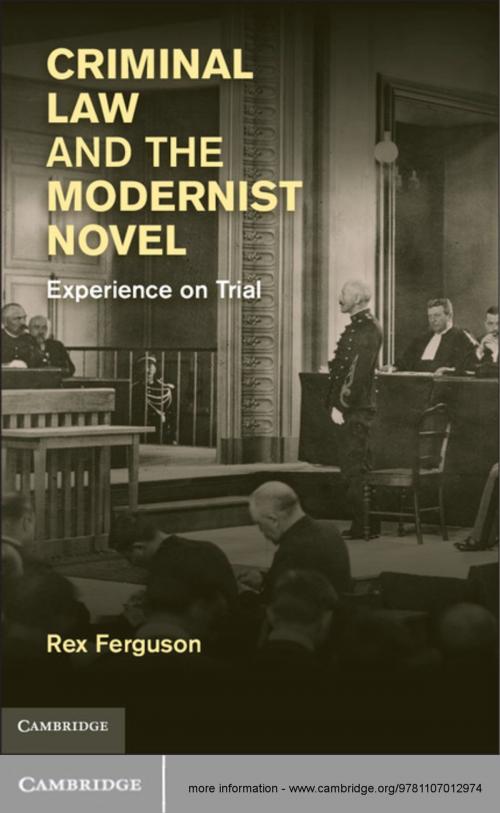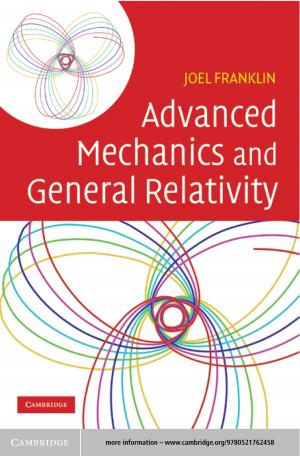Criminal Law and the Modernist Novel
Experience on Trial
Fiction & Literature, Literary Theory & Criticism, British| Author: | Rex Ferguson | ISBN: | 9781107357389 |
| Publisher: | Cambridge University Press | Publication: | July 8, 2013 |
| Imprint: | Cambridge University Press | Language: | English |
| Author: | Rex Ferguson |
| ISBN: | 9781107357389 |
| Publisher: | Cambridge University Press |
| Publication: | July 8, 2013 |
| Imprint: | Cambridge University Press |
| Language: | English |
The realist novel and the modern criminal trial both came to fruition in the nineteenth century. Each places a premium on the author's or trial lawyer's ability to reconstruct reality, reflecting modernity's preoccupation with firsthand experience as the basis of epistemological authority. But by the early twentieth century experience had, as Walter Benjamin put it, 'fallen in value'. The modernist novel and the criminal trial of the period began taking cues from a kind of nonexperience – one that nullifies identity, subverts repetition and supplants presence with absence. Rex Ferguson examines how such nonexperience colours the overlapping relationship between law and literary modernism. Chapters on E. M. Forster's A Passage to India, Ford Madox Ford's The Good Soldier and Marcel Proust's In Search of Lost Time detail the development of a uniquely modern subjectivity, offering new critical insight to scholars and students of twentieth-century literature, cultural studies, and the history of law and philosophy.
The realist novel and the modern criminal trial both came to fruition in the nineteenth century. Each places a premium on the author's or trial lawyer's ability to reconstruct reality, reflecting modernity's preoccupation with firsthand experience as the basis of epistemological authority. But by the early twentieth century experience had, as Walter Benjamin put it, 'fallen in value'. The modernist novel and the criminal trial of the period began taking cues from a kind of nonexperience – one that nullifies identity, subverts repetition and supplants presence with absence. Rex Ferguson examines how such nonexperience colours the overlapping relationship between law and literary modernism. Chapters on E. M. Forster's A Passage to India, Ford Madox Ford's The Good Soldier and Marcel Proust's In Search of Lost Time detail the development of a uniquely modern subjectivity, offering new critical insight to scholars and students of twentieth-century literature, cultural studies, and the history of law and philosophy.















